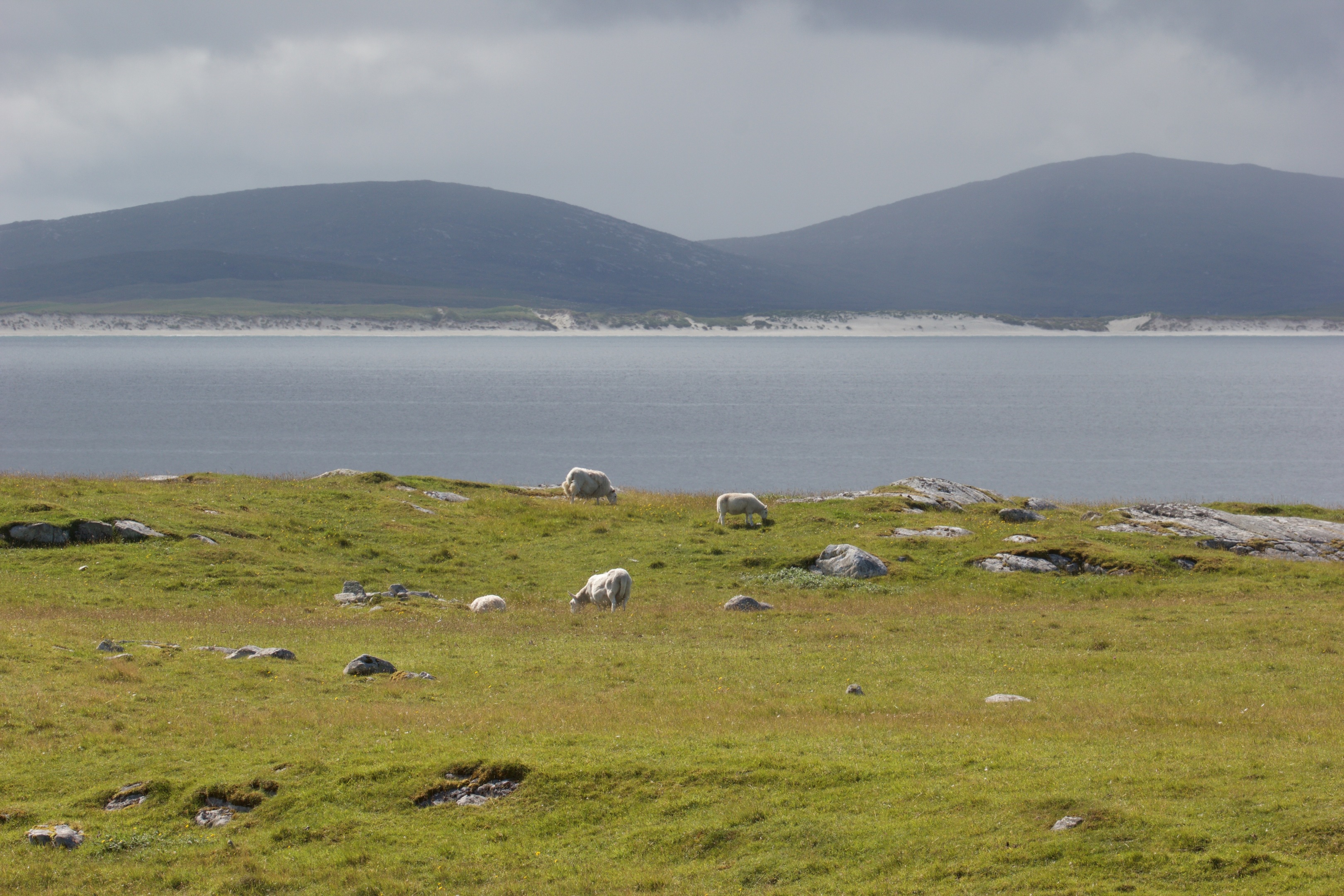Many of the sheep producers in the north are gearing up for the first of the annual lamb sales.
Although not as large as in the past, these first sales of store lambs are financially vital to the area.
My whole shepherding year has been working to these specific dates in mid August. This year’s crop of lambs are well grown and well fleshed. A spell of summer sun would be most welcome to put the final shine on them before they enter the sawdust ring.
Last week we enjoyed a trip to judge the South Harris Show. The hospitality that we were given was amazing. The highlight for me was a trip out to the island of Pabbay.
We could have been in the Caribbean as we were blessed with glorious sun, reflecting on clear blue green seas and long, white beaches. The lambs and cast ewes from Pabbay come off the island to be sold at the end of each summer having grazed the machair.
They are loaded on to an open boat, 75 at a time. They continue on by lorry from South Harris to their second sea crossing to Skye and the final leg of their journey to Dingwall mart.
It gave me a new perspective on the challenges faced by island communities.
For me there is an element of romance to the trip that these island lambs make to be sold. I always take a moment to reflect as our own lambs head out Armadale Brae in lorries bound for Lairg with distraught mothers left behind. Without fail this brings tears to my eyes.
George Monbiot is a writer, journalist and environmental commentator with more than 157,000 followers on Twitter, and he certainly does not share my love of sheep and hill farming. He claims that the upland areas of the British Isles have been ‘sheep wrecked’ by ‘woolly maggots’ and maintains that the current subsidy system pays farmers for the environmental destruction of the uplands.
Monbiot advocates the removal of the sheep and wants to see the reintroduction of as many species that are politically and publicly acceptable. Monbiot is not alone and we cannot ignore the increasing clamour from the rewilding lobby.
Add in the changes post-Brexit and it should bring plenty of lively discussion.
As farmers we must get better at telling our story and connecting with our consumers.
I believe we hold the trump card when it comes to where and how we produce many of our hill lambs and calves. We have stunning scenery, from rocky shores to the heather-clad hilltops, and sustainable and extensive methods of rearing predominantly native breed cattle and sheep.
This is certainly what I try and convey on my posts to social media along with the socio-economic benefits and the cultural history of farming in the hills.
We need to show that as farmers we have no interest in the destruction of the land or the environment, despite the claims of the rewilding lobbyists. Increasing the consumers’ knowledge of where and how their food is being produced is vital to our industry’s survival.










